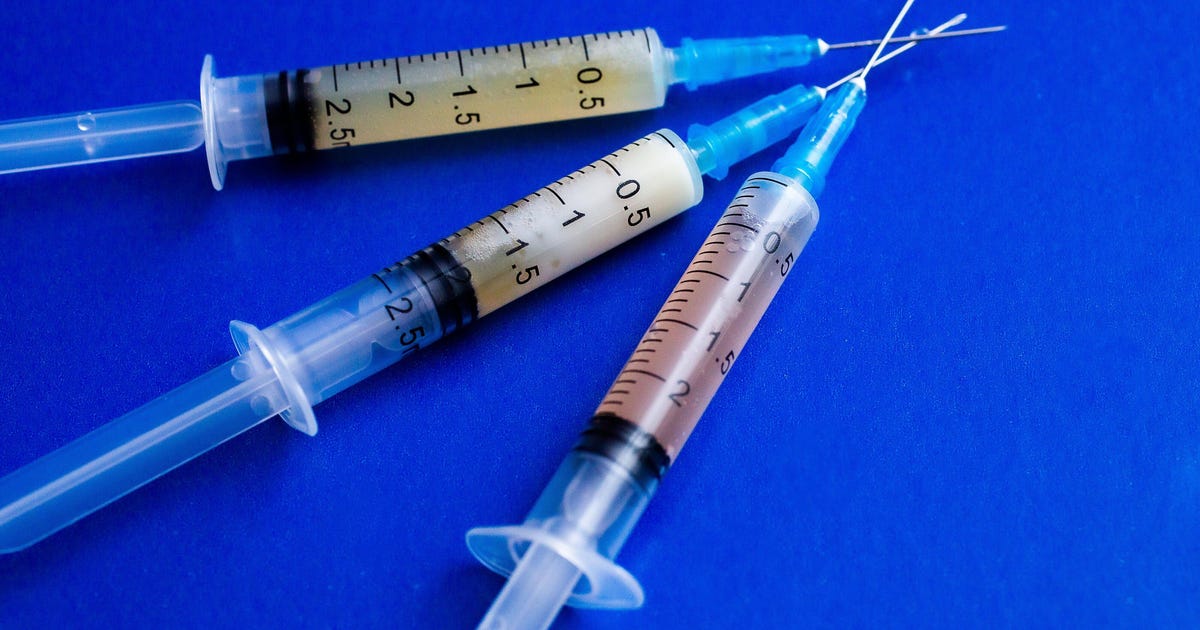Galaxy Watch 4: 48 hours with Samsung’s new smartwatch – CNET
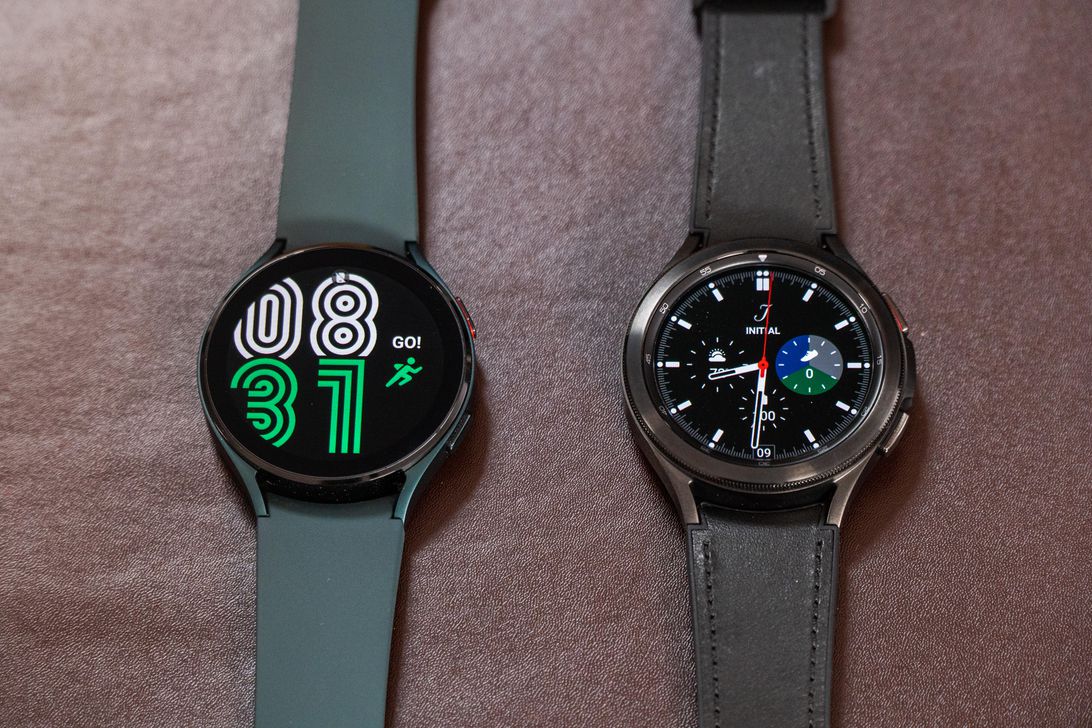

Trying the latest Galaxy Watch 4, unveiled earlier this week at Samsung’s August Unpacked event, feels like a peek at where Android watches are heading. The Samsung watch is the first with Google’s newest version of its Wear OS, and it’s a partnership between two companies that don’t normally align.
It’s early days for where this Galaxy Watch 4, and Google’s Wear OS platform, are heading and the watch doesn’t even become available until Aug. 27. (The Galaxy Z Fold 3 and Galaxy Z Flip 3, unveiled alongside Samsung’s new smartwatch, also arrive Aug. 27, but you can preorder them now.) But here are some early things I’m already figuring out from a couple of days with both models. Keep in mind that my thoughts here may change as new software or app updates possibly roll in, and as these health features spend a longer period of time collecting data on my wrist.
Watch 4 and Watch 4 Classic are basically the same, except for that physical bezel
The two watch models feel pretty interchangeable, which means you should probably get the model you like the looks of most. Or, the most affordable one: I prefer the sleeker Watch 4, which starts at $250 (£249, Australian prices TBD). The Classic starts at $350 (£349), and does have a stainless steel body instead of aluminum, but it’s that physically spinning bezel that’s different.
What do you use it for? Mainly, swapping between quick views of information mini apps, called Tiles. On the Watch 4, they’re mainly health metrics, and a few extras like calendar and messages. More are likely to arrive as Wear OS 3 continues to evolve, but the point is not every app has a tile. You could also just swipe with your finger instead, making the bezel effectively cosmetic.
The Classic, with its satisfying clicking bezel, has a display that’s inset. It makes swipes sometimes a little trickier to pull off. But there is a big bezel advantage, I discovered: When swimming, that physical dial is easier to control when wet than the touch display.
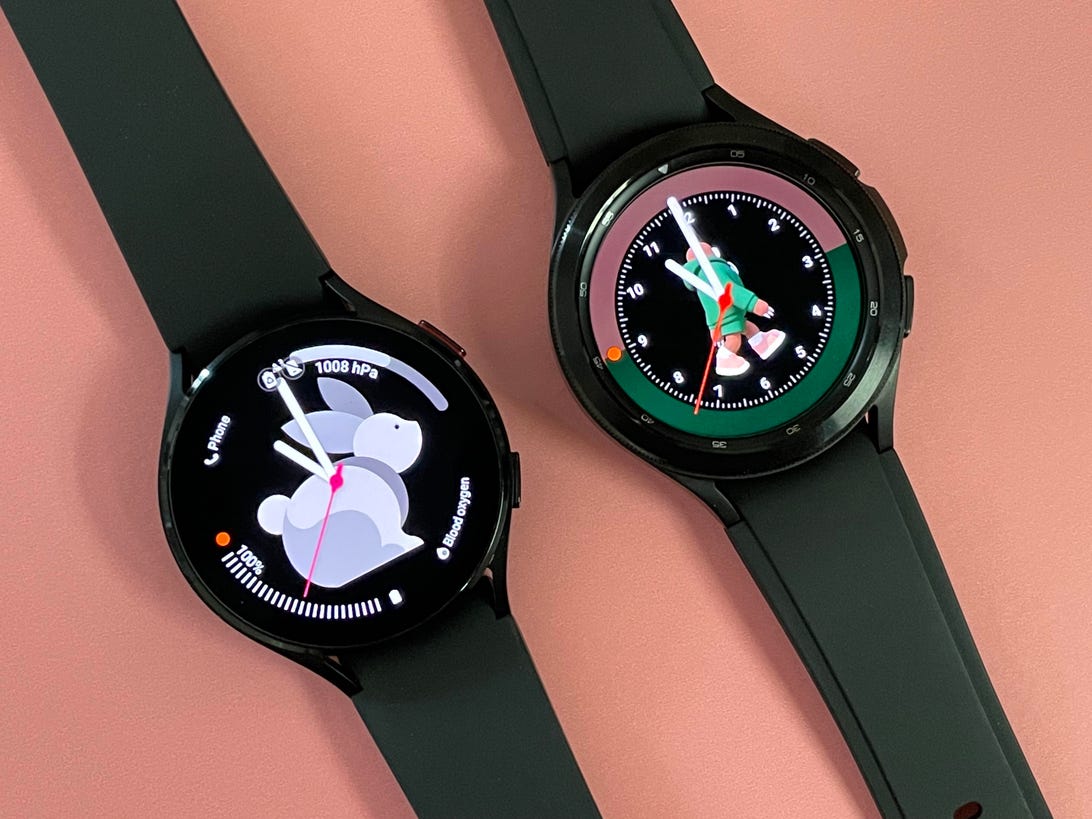

Animals and animals: lots of animated watch faces on the Watch 4.
Scott Stein/CNETThe watch faces are beautiful (mostly)
I love Samsung’s Galaxy Watch 4 watch faces. Many are animated and adorable. There are a couple of weird ones: AR Emoji and Bitmoji watch faces try to put cute avatars of me on the watch, but I found them grating — I don’t use Apple’s Memoji watch faces much either. There are a good number of customizations on most of them, but not all. Some are fitness-focused, and some have cool optional complication layouts (like clock-face widgets for apps).
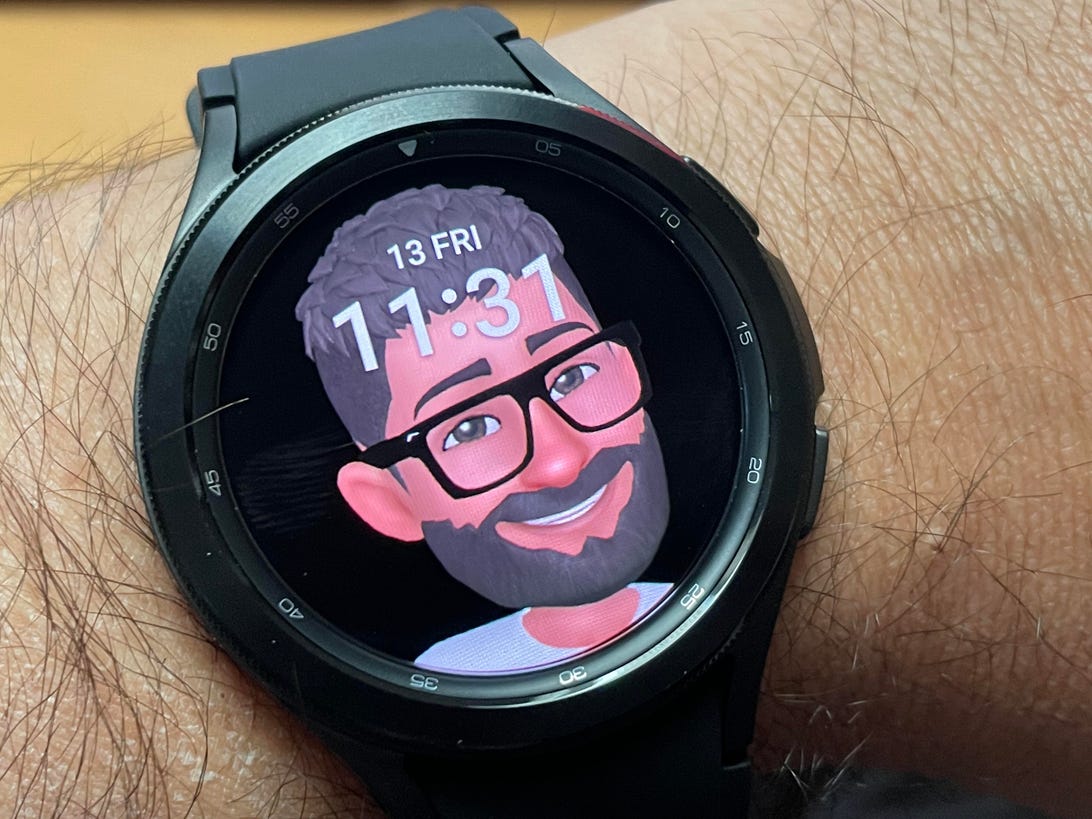

The AR Emoji watch face… not as wild about it (but OK, it’s kind of fun).
Scott Stein/CNETDisappointingly, many of the best animated watch faces don’t have complication add-on options, so you’ll use them at the expense of helpful bits of info like weather or battery life. Google’s Wear OS faces make an appearance, too. These seem like the best watch faces I’ve ever seen on an Android watch, and it’s still a great sign for what Google and Samsung’s new platform can do. I’d like a few more complication add-on options, though.
The only assistant is Bixby
Hello, Bixby. I guess we meet again.
Samsung’s voice assistant returns, and it’s assigned to one of the Watch 4 buttons by default (the top, a long press summons it). You can’t access Google Assistant as an option, which is something I was convinced would be on the Watch 4. I was wrong. (You can swap out Bixby with a Power Off shortcut, but that’s it for that long-press button reassigning.)
Plans may change: right now, Bixby is the only assistant. Again, the watch doesn’t arrive until the end of the month. It’s built on Wear OS, and Google’s apps can be downloaded onto the Watch 4. But I’m concerned about not having Google Assistant. Assistant is a big part of how a watch can be connected to a phone (or common Google apps), and it feels like a big loss not to have it right now. I actually use voice commands quite a bit on watches like the Apple Watch because they’re easier to pull off in a pinch, hands-free. It’s also particularly weird because Fitbit now has Google Assistant support on its voice-connected devices.
I’ve only used the Galaxy Watch 4 with a Samsung phone right now, but how this works on other Android phones remains a big question. Then again, Samsung had Bixby on its previous Android-connected Galaxy watches, too.
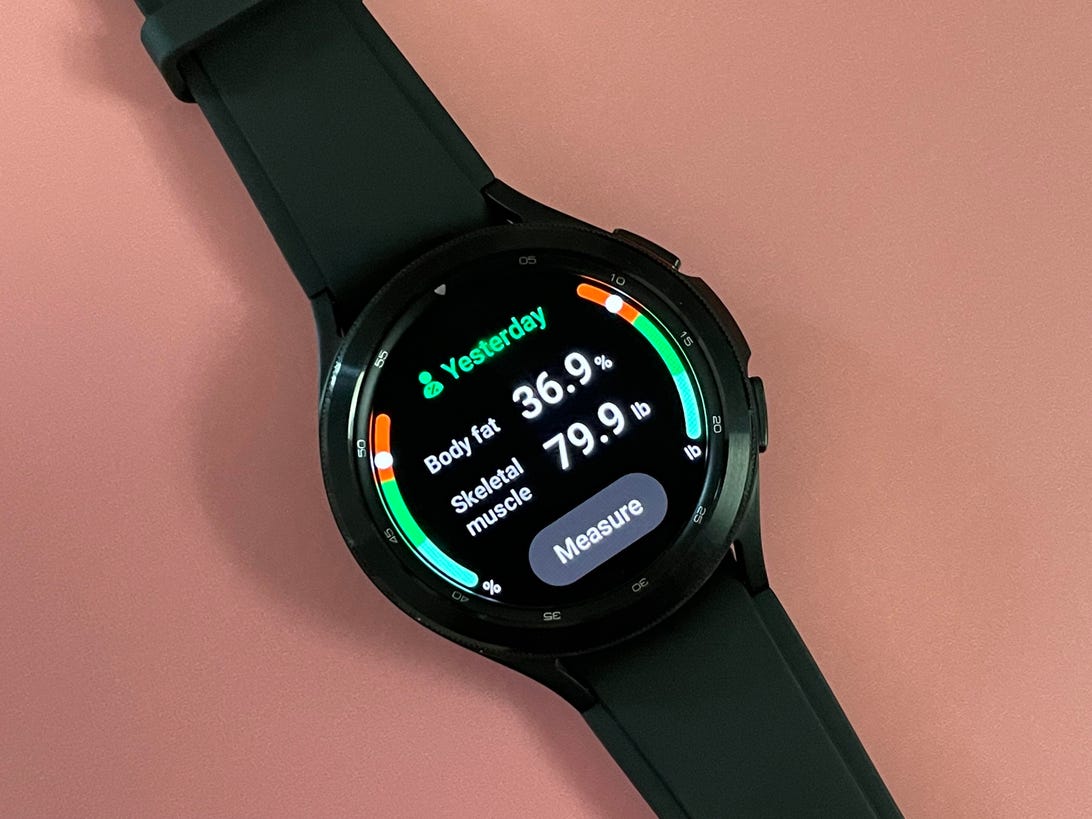

I’m totally embarrassed by my body analysis readings via electrical impedance on Samsung’s newest sensor.
Scott Stein/CNETSamsung’s new body analysis sensor is easy to do, but it’s stressing me out
The electrical impedance-based body sensor works by touching two fingers to the watch buttons for 15 seconds and staying still, completing a circuit while the watch measures a mild current passed through the body. It’s a bit like doing an ECG reading for heart rate, except faster. The readouts it produces include body mass index, skeletal muscle mass, water weight and body fat percentage. It estimates actual numbers, and also pinpoints each on a little range from green (low) to red (high).
I felt somewhat hit over the head with numbers. Mine were all bad. I know my weight is high, and I know my BMI. The rest seemed really concerning, too. The problem was, I had no idea what to do next. Samsung Health doesn’t currently serve up any guidance on whether to see a doctor, how to make healthy choices or even how concerning the results are. I just got more stressed, and kept rechecking, and then questioned my life choices. Ideally, you want health sensors to guide you forward, not send you curling up into a ball. It’s a common concern with how all fitness trackers and health watches seem to be flooding the zone with more data, without figuring out how to help with that data, or even advise on how accurate it is.
Samsung requires Android owners to install the Samsung Health Monitor app on Android phones to use these features, and ECG stress measurement.
It’s very early days, and also, I don’t even know yet how accurate these numbers are. Deep breaths.
Snore tracking: Keep your phone by your bedside
Samsung’s sleep tracking on the watch uses a phone microphone to check for snoring as an add-on extra, which I tried to do the first night… and failed. I use a CPAP anyway, which means I shouldn’t snore. But I also use a fan near my bed for white noise. I tried to sleep for a while without the CPAP, and still didn’t get any snore readings.
Then I realized I needed to keep the phone connected to a charger at night for the readings to collect. Night 2, I slept for a while without the CPAP and got a snore reading at last.
But it’s weird: First, it only showed one instance of snoring (did I stop after that?). It’s presented as an audio recording on the Samsung Health app, which means yes, your phone is listening to you and sometimes recording you at night.
Second, what does snore awareness even do for me? Snoring is pretty common, and snoring is not always an indicator of sleep apnea, which is what I need a CPAP machine for. The rest of the sleep tracking’s measurements of light, deep and REM sleep, and its assigned sleep score, seem to have nothing to do with the snore detection. It’s a very odd new feature that I don’t know what to do with… unless I just wanted hard proof that I snore.
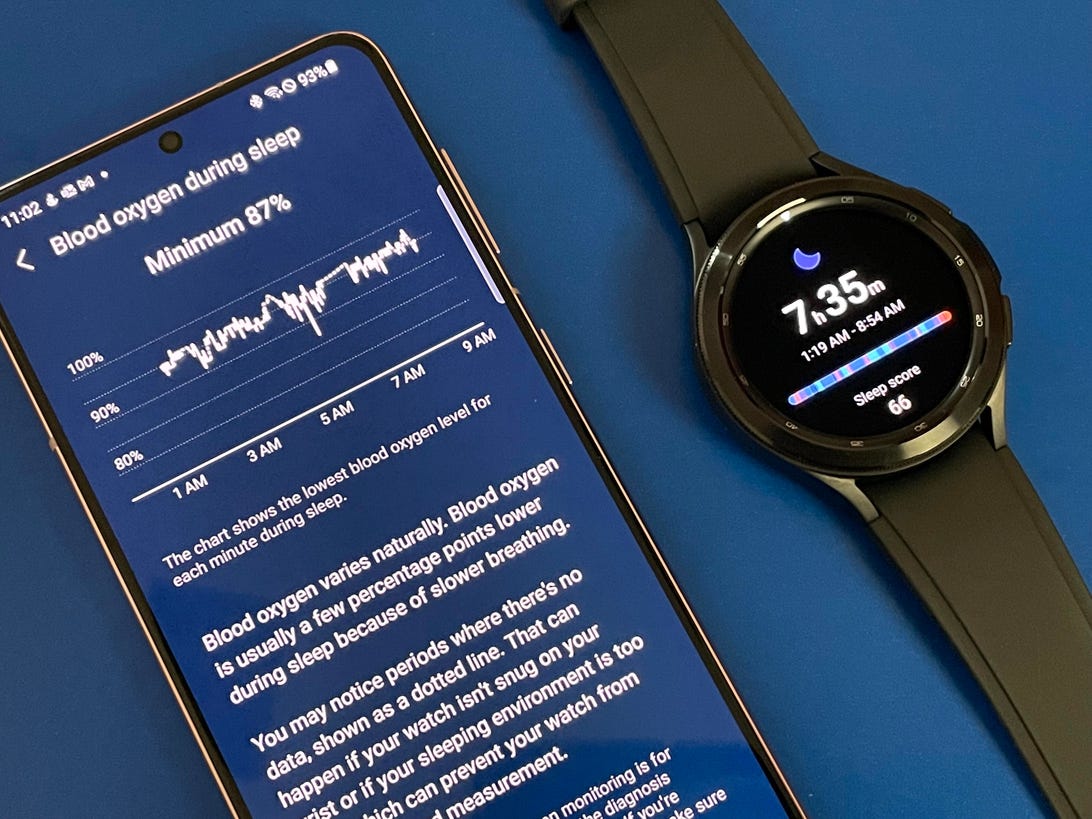

Blood oxygen measurements happen overnight… not always sure what to make of this either (the continuous readings aren’t necessarily accurate, either).
Scott Stein/CNETBlood oxygen measurements are recorded overnight if you toggle this in Samsung Health settings (snore detection is also a toggled setting). Blood oxygen measurements on watches aren’t medically precise, so I find they all vary way more than a standard pulse oximeter you’d wear on your finger. Maybe it could help determine if there’s a massive drop in blood oxygen? Again, hard to judge its use.
Blood pressure doesn’t yet work in the US
Samsung has a way to check blood pressure on its watches using the optical heart-rate sensor, but it requires calibration against a blood pressure cuff. It’s cleared for use in a number of countries along with the ECG, but not yet in the US. On my review model, I was able to check my stress level… which is basically the non-FDA-cleared version of the blood pressure functions. It didn’t do much other than map my supposed stress on a color gradient, from green to red.
Battery life? Expect two days or less
The Galaxy Watch 4, in its 44mm size, lasted me about a day and a half on my first full charge and use. I started using it at 2 p.m. on my first day and it lasted until late at night on the next day. I didn’t have the display always on, but I did have continuous heart rate on. If I use the always-on display, battery life would be even less.
I’ve been sleeping with the Galaxy Watch 4, and am wearing it all the time. I won’t have real thoughts on battery life for a week or so, but so far it doesn’t seem like it would ever make it to three days.
And also: I’m using the larger models of the Galaxy Watch 4. On the smaller versions, battery life is likely less good. The smaller Samsung Galaxy Watch 3 had a hard time with battery life when CNET’s Lexy Savvides pushed it hard with the always-on display, GPS, music playback and other connected functions.
I’m only a few days into trying these out, and my full impressions are coming in a future review. It’s clear that this is the next big phase for Android watches, but it’s not clear yet whether this is the perfect time to hop onboard.


